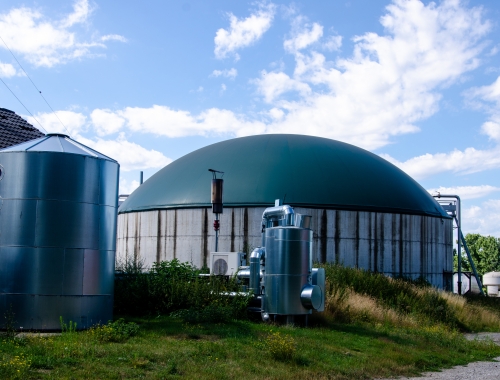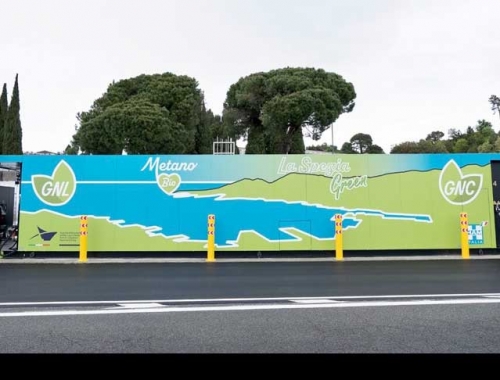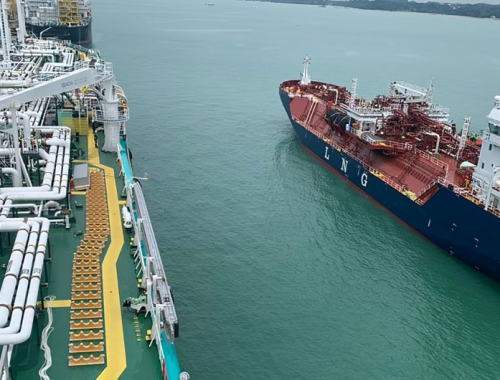STX , Titan complete STS bunkering of bio-LNG to Hapag-Lloyd vessel in Rotterdam
SUMMARY
STX and Titan collaborated to liquefy and store mass-balanced biomethane in Zeebrugge. [Image: STX]
By Shardul SharmaCommodity trader STX and Titan Clean Fuels on April 9 announced the conclusion of ship-to-ship bunkering operation, delivering 2,200 tonnes of liquefied biomethane (LBM), or bio-LNG, to a Hapag-Lloyd container vessel at the port of Rotterdam.
Titan’s Alice Cosulich bunker vessel delivered LBM to Hapag-Lloyd’s Brussels Express container ship. This transaction marks Hapag-Lloyd’s entry into using LBM as sustainable shipping fuel, representing the largest ship-to-ship bunkering operation known till date, STX and Titan said in a joint statement.
STX and Titan collaborated to liquefy and store mass-balanced biomethane in Zeebrugge, Belgium, under ISSC certification fully recognised under the European Union's Renewable Energy Directive.
“This pioneering deal demonstrates that bunkering large quantities of liquefied biomethane is possible and scalable. However, there is still more progress required regarding the necessary infrastructure and the regulatory framework,” said Jan Christensen, senior director fuel purchasing at Hapag-Lloyd.
“At Titan, while we’re fuel agnostic, we recognize the LNG pathway via LBM and renewable e-methane as a practical, sustainable and cost-effective route to net-zero shipping emissions and towards regulatory compliance for shipowners and operators,” commented Caspar Gooren, director of renewable fuels at Titan Clean Fuels.
Biomethane is derived from sustainable biomass feedstocks such as industrial and agricultural waste streams, ensuring minimal environmental impact and avoiding competition with food production. LBM is delivered in the form of physical molecules, injected into the gas network and transported to liquefaction plants and LNG terminals using existing infrastructure through a system of mass balancing.





